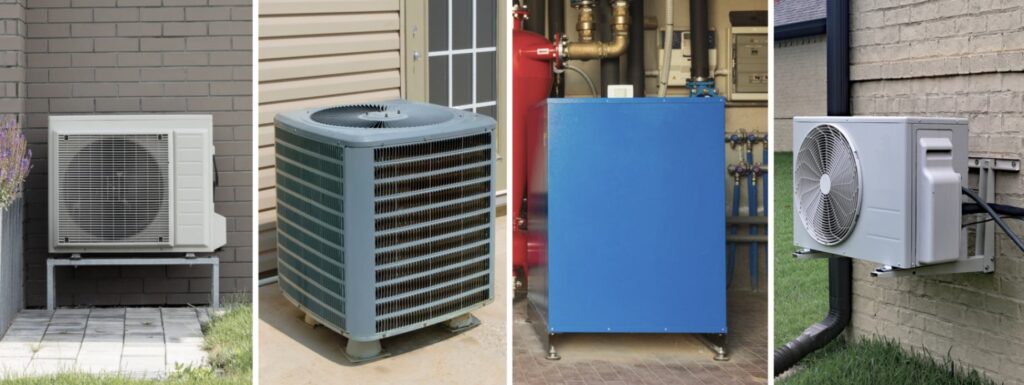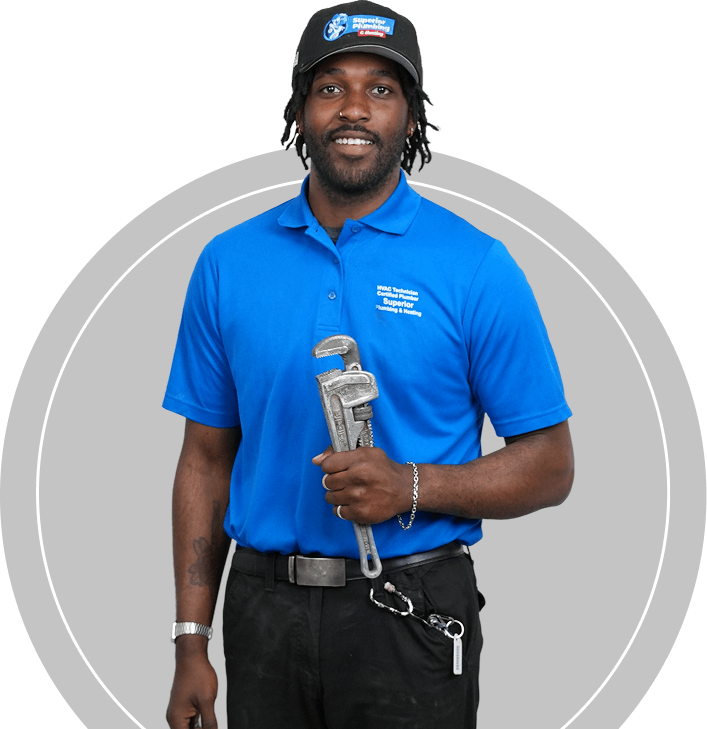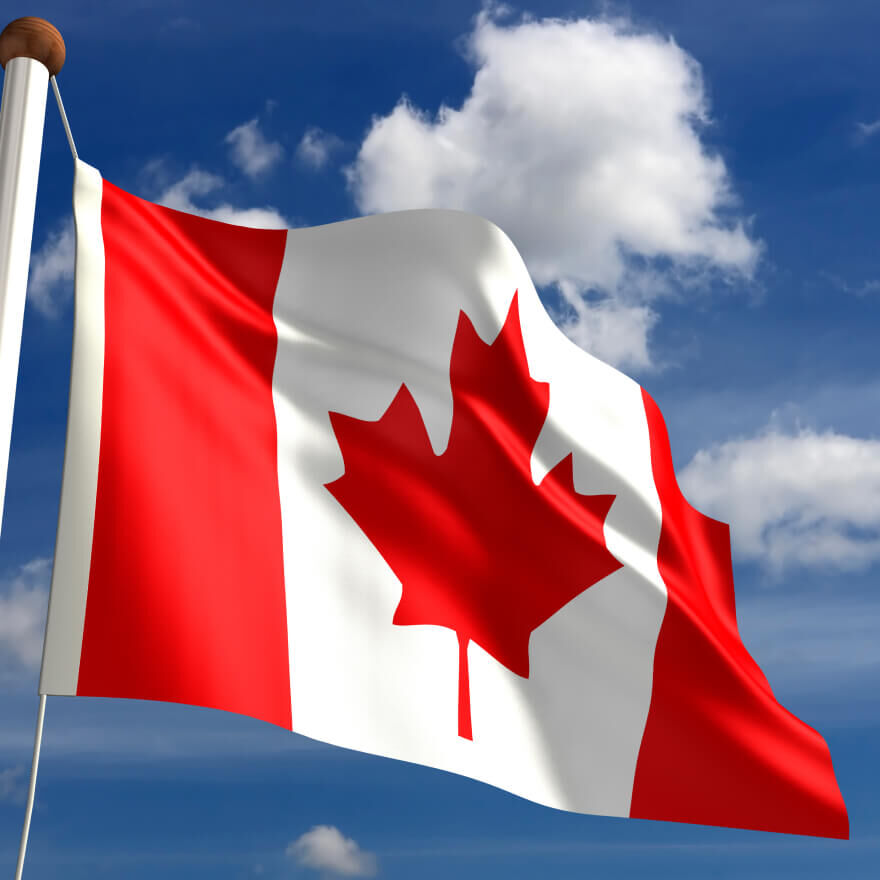Everything Canadian Homeowners Need to Know in 2026
Heat pumps are becoming a popular and efficient choice for heating and cooling homes in Canada. With energy costs increasing and a national electrification trend underway, 2026 remains a strong year to evaluate heat pump options.
In this guide, we explore the main heat pump types available in Canada, their pros and cons, typical installed costs, and which system suits your home and climate most effectively.
What Is a Heat Pump and How Does It Work?
A heat pump is an energy‑efficient heating and cooling system that moves heat instead of generating it. In winter, it extracts heat from outside (air or ground) and transfers it indoors. In summer, it reverses this process, cooling your home by expelling indoor heat outdoors.
Heat pumps can deliver 2–4 times more heating energy than the electricity they use, making them far more efficient than electric baseboards or many furnaces.
Key components include:
- Compressor – increases refrigerant temperature and pressure
- Evaporator coil – absorbs heat
- Condenser coil – releases heat
Why Heat Pumps Are Perfect for Canadian Homes
Modern heat pumps, especially those designed for cold climates, are engineered to operate efficiently even at temperatures as low as -25°C. They offer an all-in-one heating and cooling solution, which is especially attractive in provinces with hot summers and cold winters.
Benefits of heat pumps:
- Lower ongoing energy bills
- Reduced carbon footprint
- Eligibility for federal/provincial/utility rebates
- No on‑site fuel storage
- Quiet operation and zoned comfort options (ductless systems)
Government incentives and long-term savings make heat pumps an excellent investment for most Canadian homeowners.

Main Types of Heat Pumps in Canada
1. Air‑Source Heat Pumps (ASHP)
Air-source heat pumps are the most common type in Canadian homes. They extract heat from the outside air and transfer it inside in winter (or reverse the process in summer). They’re affordable, easy to install, and well-suited for moderate to cold climates.
1.1 Air‑to‑Air Heat Pumps
Distribute heated or cooled air through ducts or ductless indoor units.
Pros
- Proven technology and readily available
- Provides both heating and cooling with one system
- Lower install cost compared with more complex systems
Cons
- Efficiency declines in deep cold (below ‑25°C without advanced models)
- Does not provide domestic hot water
- May require auxiliary heat in extreme cold
Additional Considerations
- Best for retrofit or replacement of central HVAC systems
- Efficiency varies by SEER/HSPF ratings
Typical Installed Cost: ~$6,000–$12,000 (whole‑home units)
1.2 Air‑to‑Water Heat Pumps
Heats water for radiant floor heating, radiators, or domestic hot water use.
Pros
- Can heat both air and water (for radiators or radiant floors)
- Often high overall efficiency when paired with hydronic distribution
- Excellent choice for new builds with radiant floors
Cons
- Higher upfront cost and system complexity
- Requires water distribution infrastructure
- Limited availability of certified installers in some regions
Typical Installed Cost: ~$10,000–$15,000 or more depending on hydronic system integration
2. Cold‑Climate Air‑Source Heat Pumps (ccASHP)
Cold‑climate models are engineered to maintain efficient heating at low temperatures commonly experienced in most of Canada.
Pros
- Works reliably in sub‑zero conditions where standard ASHPs struggle
- Good blend of performance and unit cost for much of Canada
- Provides year‑round heating and cooling
Cons
- More expensive than basic air‑to‑air units
- May still require supplemental heat in extreme northern climates
- Slightly higher operational complexity
Typical Installed Cost: ~$12,000–$22,000
3. Ground‑Source (Geothermal) Heat Pumps
These systems use underground heat (or water) through buried loops, offering excellent efficiency and long life.
Pros
- Very high seasonal efficiency and low operating costs
- Stable performance regardless of outdoor air temperature
- Quiet operation with buried loop system
- Longevity: underground loops can last 50+ years
Cons
- Highest upfront cost among common types
- Requires land for horizontal loops or drilling for vertical loops
- Installation is complex and site‑specific
Typical Installed Cost: ~$21,000–$40,000+
4. Ductless Mini‑Split Systems
Ideal for homes without ducts or for zonal temperature control.
Pros
- Excellent retrofit option for older homes
- Individual room control and zoning
- Quiet and efficient
Cons
- Higher combined cost when heating large homes via multiple units
- Aesthetic impact of indoor units
- Efficiency limited by outdoor temperature, often needing backup on very cold nights
Typical Installed Cost:
- Single zone: ~$3,600–$5,500
- Multi‑zone systems: ~$6,000–$15,000+
5. Hybrid (Dual Fuel) Heat Pumps
Pairing a heat pump with a gas furnace or another backup source lets the system switch between the two based on efficiency and outdoor temperature.
Pros
- Flexibility: uses heat pump until very cold, then switches to gas
- Reduces operating cost compared with pure fossil fuel system
- Good choice where electric rates or grid reliability matter
Cons
- More complex installation
- Two systems to maintain
- Cost savings hinge on relative electricity vs gas price
Typical Installed Cost: ~$12,000–$20,000+
Comparing Pros and Cons of Each Heat Pump Type
| Type | Efficiency | Climate Suitability | Hot Water | Cost (Installed) | Key Pros | Key Cons |
| Air‑to‑Air | Moderate | Mild‑cold | No | ~$6k–$12k | Lower cost, simple | Less efficient in deep cold |
| Air‑to‑Water | High | All climates (hydronic) | Yes | ~$10k–$15k+ | Dual function | Complex, pricier |
| Cold‑Climate ASHP | High | Cold‑moderate | No | ~$12k–$22k | Performs well in cold | Higher cost |
| Ground‑Source | Very High | All year | Yes | ~$21k–$40k+ | Best efficiency | Highest cost |
| Ductless | Moderate | Mild‑cold | No | ~$3.6k–$15k+ | Zoning, retrofit | Costs add up per zone |
| Hybrid/Dual Fuel | Moderate‑High | Very cold | Depends | ~$12k–$20k+ | Flexible heat sources | More complexity |
How to Choose the Right Heat Pump for Your Climate
Canada’s diverse climate means not all heat pumps work equally well in every region. Here’s how to pick the best system for your location:
- Mild Winters (e.g., BC Lower Mainland, Vancouver Island, Southern Ontario)
- Best Option: Standard air‑source or ductless systems
- Why: Less extreme temperatures mean ASHPs perform well year‑round
- Moderate Winters (e.g., Quebec, Atlantic Canada, Ottawa, Toronto)
- Best Option: Cold‑climate ASHP or hybrid systems
- Why: Reliable heating near and below freezing temperatures
- Extreme Cold (e.g., Alberta, Saskatchewan, Manitoba, Northern Ontario)
- Best Option: Ground‑source or hybrid systems
- Why: Ground‑source offers best seasonal efficiency; hybrid adds backup flexibility
Other Factors to Consider When Choosing a Heat Pump
1. Do You Have Existing Ductwork?
- Yes? A ducted air-source heat pump may be the easiest and most cost-effective choice.
- No? Consider a ductless mini-split system or an air-to-water heat pump with radiators.
2. Is Your Home New or Being Renovated?
- New Builds: Great opportunity to install geothermal or air-to-water heat pumps with radiant flooring.
- Retrofits:Ductless mini-splits or hybrid systems are often easier to install with minimal disruption.
3. Do You Want to Heat Water Too?
- Air-to-water heat pumps can provide both space heating and domestic hot water, making them ideal for hydronic systems.
- Standard ASHPs only heat/cool air—you’ll still need a separate water heater.
4. Available Space, Soil Conditions & Installation Requirements (Especially for Geothermal)
- Geothermal systems require underground loops, either long horizontal trenches or deep vertical boreholes, so available yard space matters.
- Soil composition also plays a crucial role: moist, clay-rich soils provide better heat transfer and easier excavation, while dry, sandy, or rocky soils can reduce efficiency and increase installation costs.
- Installation requires heavy equipment: trenchers for horizontal loops and drilling rigs for vertical ones, which can impact landscaping.
5. Permits & Local Regulations
Permits may be required, especially for geothermal systems involving vertical drilling. You should check local and provincial regulations before installation, particularly for:
- Drilling approvals and groundwater protection zones
- Municipal zoning or property boundary rules
- Noise and placement restrictions for air-source units in urban areas
Working with a certified HVAC contractor ensures compliance with these requirements and increases your chances of qualifying for all available incentives.
Final Recommendation
Heat pumps provide lower emissions, lower energy costs, and reliable heating and cooling in a single system. Whether you live in a mild coastal area or a cold inland climate, a properly selected heat pump can handle your home’s needs efficiently.
Choosing the right system depends on your climate, home layout, and budget. If you’re unsure, a certified HVAC specialist can evaluate your home and recommend the most effective solution.




